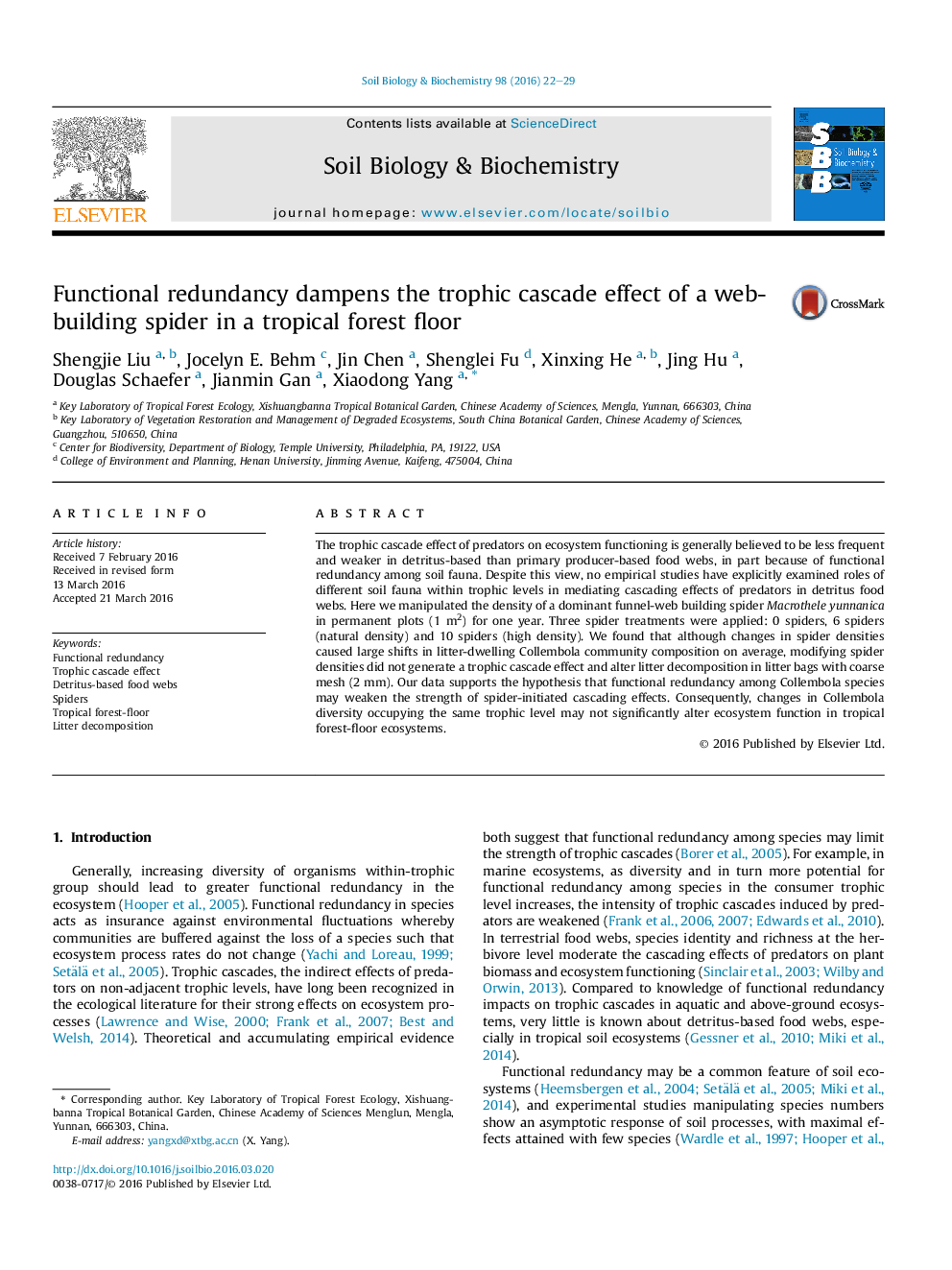| Article ID | Journal | Published Year | Pages | File Type |
|---|---|---|---|---|
| 8363528 | Soil Biology and Biochemistry | 2016 | 8 Pages |
Abstract
The trophic cascade effect of predators on ecosystem functioning is generally believed to be less frequent and weaker in detritus-based than primary producer-based food webs, in part because of functional redundancy among soil fauna. Despite this view, no empirical studies have explicitly examined roles of different soil fauna within trophic levels in mediating cascading effects of predators in detritus food webs. Here we manipulated the density of a dominant funnel-web building spider Macrothele yunnanica in permanent plots (1Â m2) for one year. Three spider treatments were applied: 0 spiders, 6 spiders (natural density) and 10 spiders (high density). We found that although changes in spider densities caused large shifts in litter-dwelling Collembola community composition on average, modifying spider densities did not generate a trophic cascade effect and alter litter decomposition in litter bags with coarse mesh (2Â mm). Our data supports the hypothesis that functional redundancy among Collembola species may weaken the strength of spider-initiated cascading effects. Consequently, changes in Collembola diversity occupying the same trophic level may not significantly alter ecosystem function in tropical forest-floor ecosystems.
Related Topics
Life Sciences
Agricultural and Biological Sciences
Soil Science
Authors
Shengjie Liu, Jocelyn E. Behm, Jin Chen, Shenglei Fu, Xinxing He, Jing Hu, Douglas Schaefer, Jianmin Gan, Xiaodong Yang,
